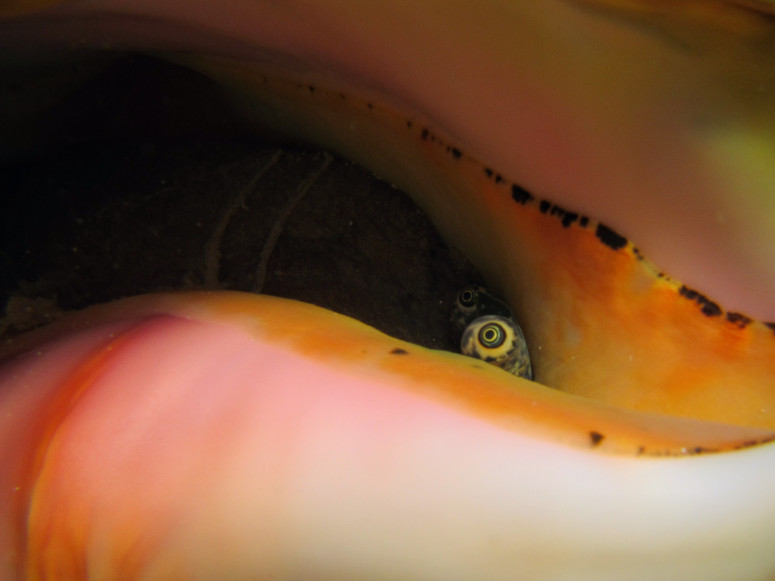Enter your amazing science visuals in the 2024 Cool Science Image Contest

The eyes of a queen conch peer out nervously from an overturned shell in a seagrass meadow in the Turks and Caicos Islands. Conchs eat and recycle organic matter, an important role in seagrass habitats that are, in turn, important in stabilizing shorelines with their dense root systems. Robert Johnson, assistant professor, Department of Integrative Biology; digital camera Robert Johnson
Science is a visual enterprise. Scientific imagery created with microscopes, telescopes, cameras — even paint on canvas — makes parts of the world that our eyes can’t perceive visible, understandable and often beautiful.
To celebrate the exploratory and artistic value of those images, the 14th annual Cool Science Image Contest is soliciting the best visuals from members of the University of Wisconsin–Madison community.
More than 1,000 pictures and videos — depicting animals, insects, plants, cells, stars, weather, nanoscale structures and more — vied for top prizes in the first 13 years of the contest, which is made possible with the sponsorship from Promega Corp.
Any member of the UW–Madison community may enter any visual media produced during the course of research, scholarship or self-guided discovery.
Previous winners include distinguished scientists who have gone on to win prestigious international image contests, but every year’s crop of honorees includes relative novices whose curiosity led them to capture something amazing.
Submissions are featured on university websites and other communications as well as in exhibits on and off campus. Winning images and two winning videos are showcased in a fall exhibit at the Mandelbaum and Albert Family Vision Gallery of the McPherson Eye Research Institute, and for a year at Promega’s Fitchburg headquarters.
Learn more about the contest and enter your cool science images by June 15
To enter up to three of your cool science images or videos — and to find more information about the competition — visit the contest website for guidelines, submission requirements and a link to the entry form. The submission deadline is June 15.
Winners, chosen by a panel of judges with experience in scientific imagery and visual art and storytelling, will be announced this summer. Each winning entry receives prizes including a large-format print of the winning submission and will, with other entries, be displayed around campus during science events throughout the year.




